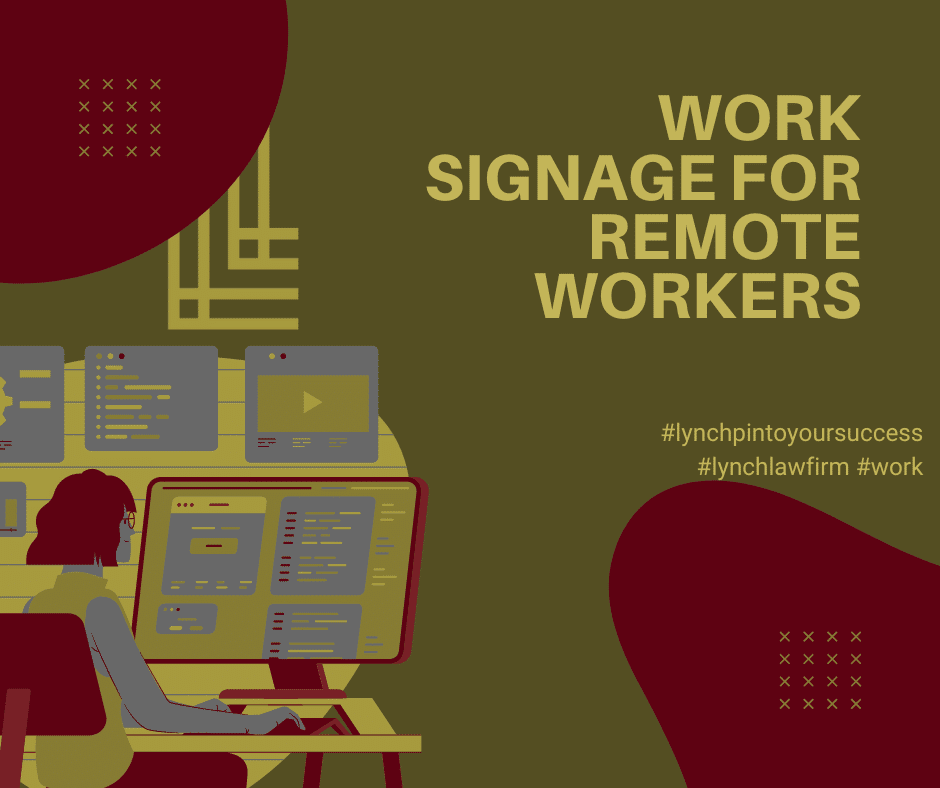U.S. Department of Labor’s Guidelines Regarding the Display the Posters Required by Federal Law
To maintain the health and safety of their employees during the height of the COVID pandemic, in early 2020, many employers developed protocols for working remotely. Recognizing that many employers are continuing to allow their employees to work from remote locations, the U.S. Department of Labor (DOL) recently issued guidance on how employers can use virtual means to display, distribute and maintain the various posters required by federal employment laws.
Requirements Per Federal Law
Several federal laws require employers to provide their employees with a notice of rights by posting this information in a location where the data can be readily seen by employees and applicants seeking employment. Some of the federal laws that require employer compliance include:
-
The Fair Labor Standards Act (FLSA)
-
Family and Medical Leave Act (FMLA)
-
Employee Polygraph Protection Act (EPPA).
Complying with the DOL Guidelines
Before the COVID pandemic, when employees typically worked in brick-and-mortar environments, employers could quickly satisfy the legal notice requirements by prominently displaying employment-related information on bulletin boards in well-trafficked locations such as employee break rooms, conference rooms, and lobbies. Because many of these laws were enacted decades before computers and electronic devices became a normal part of doing business, few of these laws have addressed the distribution of employment notices by electronic means.
Department of Labor Guidance on Electronic Posting
In March of 2020, the COVID pandemic changed the way we do business. One of the biggest challenges for companies was defining the most effective internal and external communication strategies. In December of that year, the U.S. Department of Labor (DOL) responded by issuing the Field Assistance Bulletin 2020-7. The 5-page bulletin guided the DOL’s field staff on enforcing legal posting requirements in circumstances where there was no traditional workplace. The critical points of the DOL bulletin are:
-
“Notice requirements generally appear in one of two varieties: (1) one-time notice and (2) continuous posting.
-
Employers may satisfy one-time notice requirements (e.g., as required by the Service Contract Act) by email delivery if employees customarily receive emails from the employer.
-
For continuous-posting requirements (e.g., FLSA, FMLA, EPPA, and the Davis-Bacon Act), the guidance distinguishes between employers with only some remote employees and employers with an entirely remote workforce.
-
For employers with some remote workers, physical posters are required for on-site employees, and the DOL “encourages” electronic posting for teleworking employees.
-
Employers with an entirely remote workforce may satisfy continuous-posting obligations using electronic-only means if they meet the following requirements:
-
All employees work exclusively remotely.
-
All employees customarily receive information from the employer via electronic means.
-
All employees have “readily available access” to the electronic posting at all times, e.g., via an internal or external website or a shared network drive or file system. The DOL notes that whether access is readily available is fact-specific and requires, for example, that employees be able to access the notice without having to request permission.
-
The employer must take steps to inform employees of where and how to access the notice(s) electronically.
-
If the employer has multiple groups of employees to whom other notices apply, they must be able to “easily determine” which posting applies to them.
-
For laws that require posters to be visible to applicants (e.g., EPPA), virtual-only posting is permitted if the hiring process is conducted remotely and the applicants always have readily available access to the electronic posting.
-
The DOL’s guidance only applies to federal posting requirements enforced by the DOL. It does not address posting requirements enforced by other federal agencies (e.g., EEOC) or state-mandated posting requirements.”
Online Solutions
Although there is still much evaluation to be done regarding the various aspects associated with working remotely, some employers have found that where they work may not be as important as how they work. Suppose companies experience the successful implementation of virtual workplace accessibility and effective communication methods. In that case, this work-from-anywhere approach to doing business may have a lasting impact on companies across the globe. For employers who are implementing a remote work environment as part of their long-term strategy, the DOL’s guidance offers several online solutions to keep them in compliance:
-
Display federal, state, and municipal posters on the company intranet or employee portal.
-
Have your company intranet site or employee portal appear automatically on employees’ computers immediately upon logging in.
-
If you have employees who work in different states, make sure you display the applicable posters for each state.
-
Visit the DOL’s First Step Poster Advisor tool for help determining which federally mandated posters apply to your workforce.
-
Provide your employees with the virtual postings in your company’s employee handbook.
-
Incorporate all required federal, state, and municipal notices in the company’s applicant portal or tracking system.
If You Have Questions
If you have questions about the U.S. Department of Labor’s recently issued guidance on how employers can use virtual means to display, distribute and maintain the various posters required by federal employment laws, call Treaty Oak ELG for help now.
About Attorney Natalie Lynch
Natalie Lynch is the managing attorney of Treaty Oak ELG and a credentialed investigator and dispute resolution mediator with many years of experience working with businesses to help minimize employment risk factors. She is the only consulting and credentialed investigator in Central Texas who conducts third-party investigations into allegations of harassment, discrimination, hostile work environment, and other labor and employment issues.
Call Treaty Oak ELG Now for a Free Consultation
Call Natalie Lynch at Treaty Oak ELG now to schedule a free consultation. Please get in touch with us by phone at 512 298 2346 or by email.

